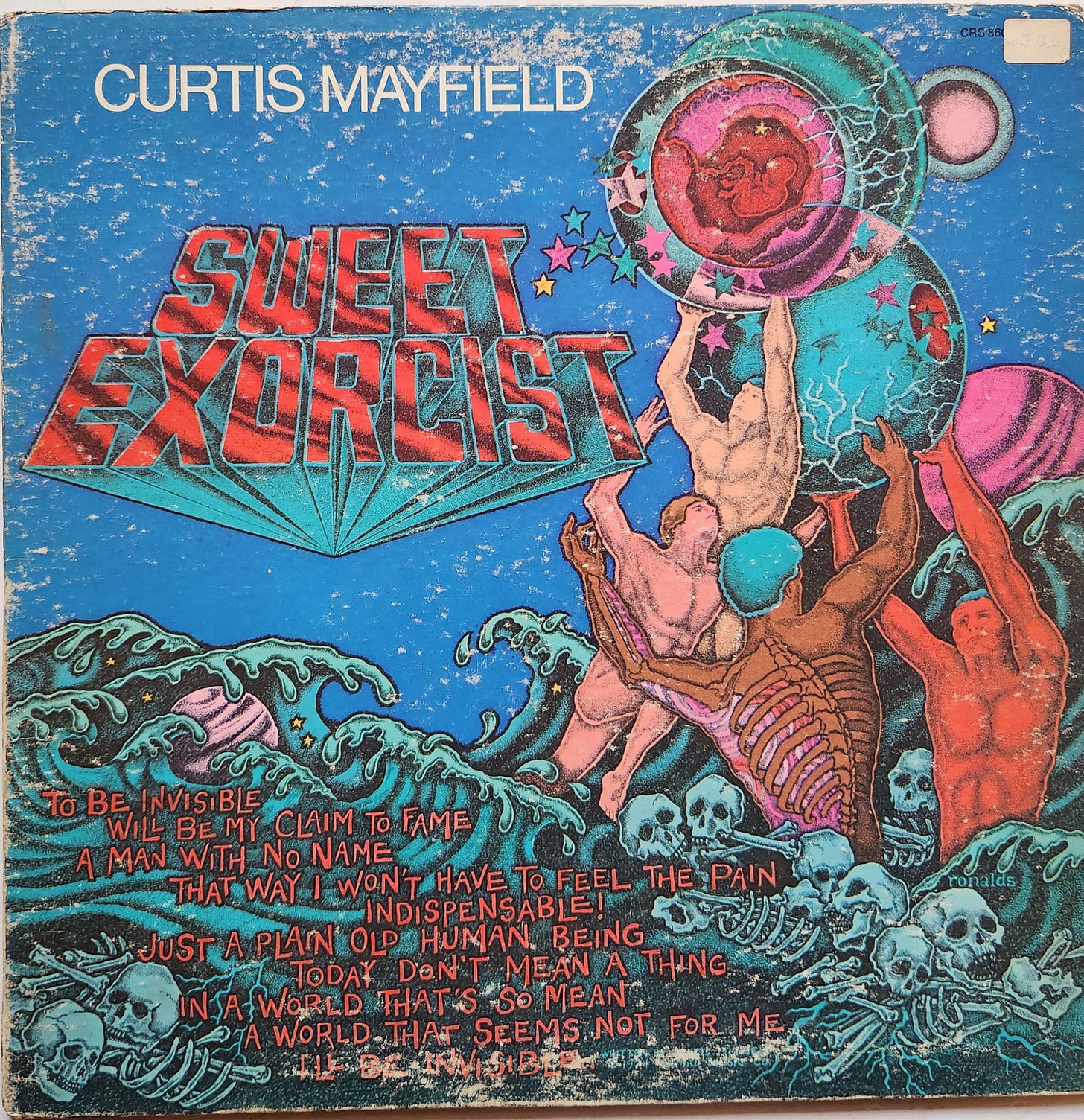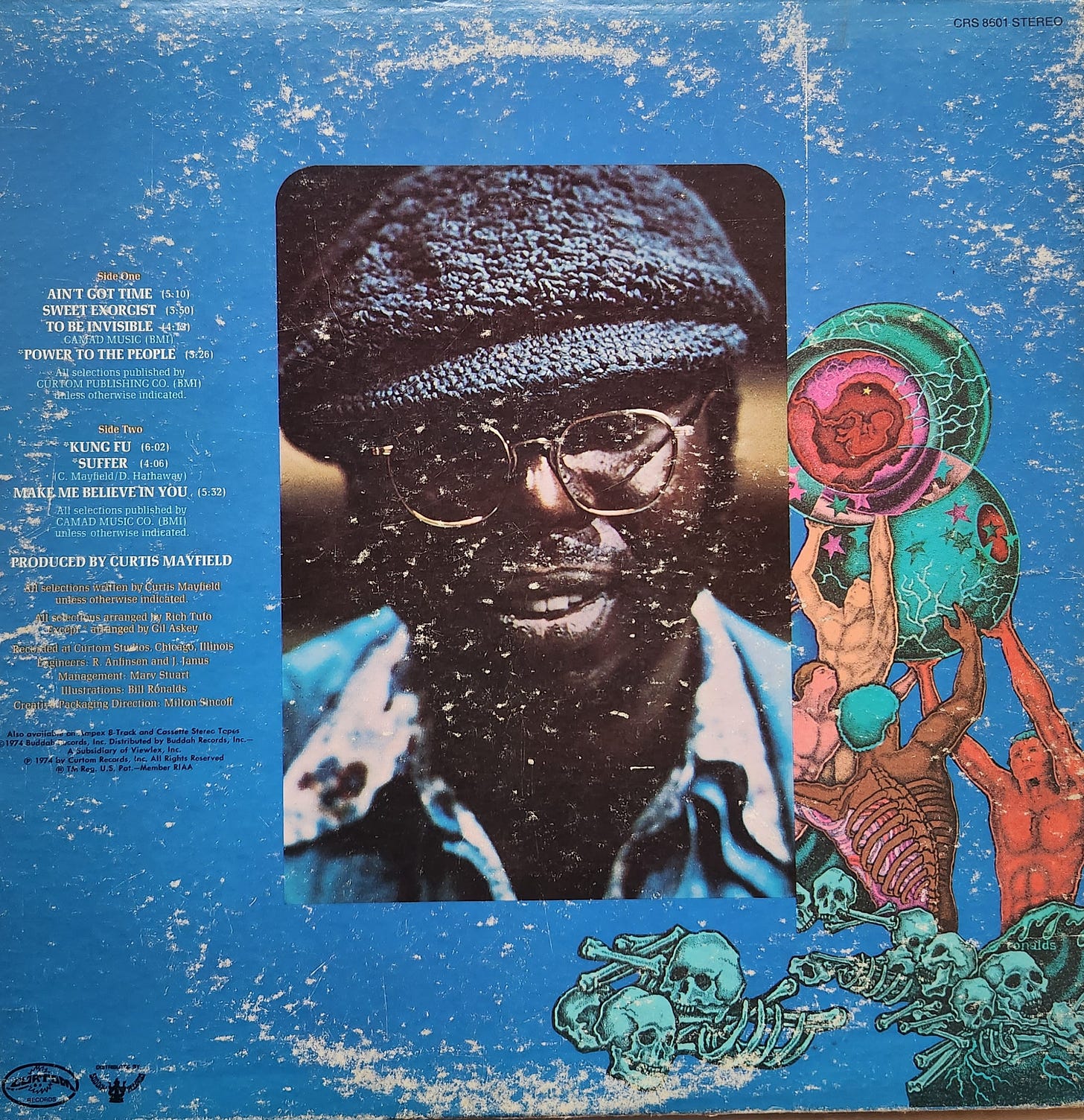“To Be Invisible” first saw daylight as an album track on Claudine, the Curtis Mayfield-produced soundtrack to the film of the same name, with songs performed by Gladys Knight & the Pips. They were at the top of their game, just six months into the dizzying wake of their monster “Midnight Train To Georgia” (#1 R&B, #1 Pop). Knight gives the song a pained, impassioned reading, enhancing a slightly clumsy lyric.
Mayfield cut his own “To Be Invisible”, and it became the central song on Sweet Exorcist, its lyrics featuring prominently amidst the LP cover’s hideous Hokusai homage. The album was a stopgap measure for an increasingly harried Mayfield. He was writing and producing albums for others (Knight, The Staple Singers), writing for and producing every act on Curtom, his independent record company, and, ideally anyway, raising his young family. In the wake of Superfly, all eyes were on Curtis Mayfield, and he’d allowed precious little time to create work that would meet its high standard.
“To Be Invisible”:
“Power To The People” best exemplifies Mayfield’s dearth of inspiration: a listless re-tread of ground he’d worked (and reworked) before, a tepid gesturing at revolutionary platitudes. His “To Be Invisible”, released barely eight weeks after Knights’, shares a nearly identical arrangement and his pleading falsetto cowers before Knights’ powerhouse instrument.
More successful, though nearly as bereft, is “Kung Fu”(#3 R&B, #40 Pop), a lyrically absurd exercise that, somewhat in spite of itself, works the funk until a sweat is produced. “Sweet Exorcist” perpetuates the collections’ darkness and benefits from the heavy riffing of the band and a wailing vocal from the leader who for once sounds fully engaged with the proceedings. Nothing quite so kind can be said of “Suffer”, a journeyman ballad marred by a careless, baffling lyric. “Make Me Believe In You” comes to salvage the album’s second act, bouncing on a sinister, staccato groove.
The nadir of his most fertile period, Sweet Exorcist is all of Curtis Mayfield’s flaws magnified: clumsy lyrics, uninspired arrangements, a falsetto voice regularly reaching for notes that its lower register could easily reach. It has its moments, but serves mostly to mark time. At the time of its creation, Curtom was finalizing a new distribution deal with Warner Bros. If Mayfield saw this as an opportunity for a new beginning, or at least a chance to shake off the cobwebs, he hedged his bets. His next release, Got To Find A Way, would hew closely to the same creative ground as its predecessor. But at least this time the songs were better.
“Sweet Exorcist”:




